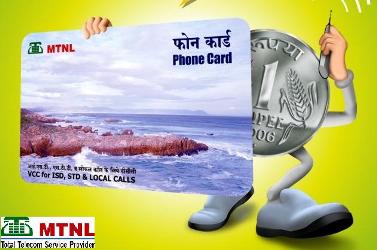Telecom Lead India: TRAI’s latest guidelines on intelligent network services may bring cheers to the Virtual Calling Card sector.
Companies such as Reliance Communications, MTNL, Airtel, BSNL, Tata Teleservices are aiming to cash in on the services.
Consumers will benefit as there will be increased competition and reduction in calling charges.
Also, the VCC segment will see the entry of more participants to the market. VCC is a big business in international markets.
Indian telecom industry has been waiting for some guidance or action from telecom regulator ever since TRAI floated its consultation paper in 2010. The 2010 consultation paper has given details of the issues in the market and views of few telecom operators.
TRAI on Tuesday said that even after amendment in license conditions of NLD/ILD in August, 2009, access service providers have not entered into agreement with NLDOs/ILDOs to facilitate the subscribers to make long distance calls using the prepaid calling cards issued by NLDO/ILDO. Therefore, the amendment to the IN regulations is considered necessary to provide specific time frame in the IN regulations to facilitate interconnection agreement between such service providers.
According to telecom regulator TRAI, presently Virtual calling Card (VCC) are not much in use and being mainly operator specific, cannot be accessed by all the subscribers. After agreements between the service providers in the framework of the regulations, the subscribers will be able to make STD/ISD Calls using Calling Cards issued by NLDOs/ILDOs.
The new VCC amendment is aimed at facilitating all service providers, who are already providing IN based services or would start IN-based services at a later date, to enter into agreement with all access providers, in a time bound manner, in the consumer interest.
The present amendment will be useful for Virtual Calling Card issued by long distance providers.
At present, Department of Telecommunications issues various kinds of telecom licences for different services.
Moreover, the amendment will lead pure NLD and ILD service provider to have direct access to consumers through virtual calling cards and induce an additional competition in the market that is expected to benefit consumers. The amendment is also expected encourage proliferation of Free Phone Services used for toll free numbers.
TRAI, in its 2010 consultation paper, said because IN services were designed from the beginning to be reusable, many new services can be implemented by building on or modifying an existing service. Reusability reduces the overall cost of developing services. Also, when the switching network architecture changes the same IN can be used without the necessity of redeveloping any of the services.

